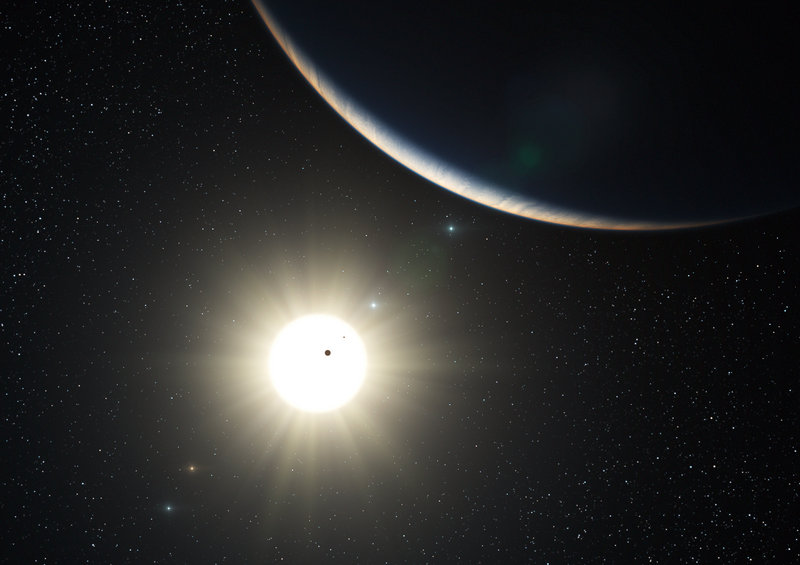GENEVA — Scientists say they’ve identified a sun-like star with as many as seven different planets — including one that might be the smallest ever found outside the solar system.
If confirmed, the planetary system around HD 10180, a star more than 100 light years distant, would be the richest ever found. One astronomer says it’s part of a growing body of evidence that the universe is full of planets — and that a bunch of them could be similar to Earth.
“The really nice thing about finding systems like this is that it shows that there are many more out there,” said Alan Boss, of the Washington-based Carnegie Institution for Science, who wasn’t involved with the find. “Mother Nature really had fun making planets.”
Although most of the planets identified are large – about 13 to 25 times the mass of our home – those behind the discovery, announced Tuesday at an international conference in France, say they’re nearly certain they’ve identified one only 1.4 times the size of Earth.
That would be the smallest planet ever spotted outside of those which orbit our own sun.
Scientists have been spotting planets beyond our solar system for the past 15-odd years, and they’ve now catalogued some 450. But most finds have been limited to one or two or three planets, usually huge balls of gas similar to Jupiter or Saturn.
But at up to seven planets, the new discovery is almost as rich as our own solar system, which has eight.
Christophe Lovis of Geneva University, one of the scientists behind the find, said the first five were most comparable to Neptune.
“They are made essentially of rocks and ice. They have a solid core. But on top of that is a layer of gas, of hydrogen and helium most likely,” he said. “They are probably not habitable.”
The sixth is possibly a Saturn-like planet, while the seventh, the smallest, would be so close to its star that its “year” would take just over a day.
The find was made by researchers from Switzerland, France, Germany and Portugal and submitted to the journal Astronomy and Astrophysics.
Copy the Story Link
Send questions/comments to the editors.



Success. Please wait for the page to reload. If the page does not reload within 5 seconds, please refresh the page.
Enter your email and password to access comments.
Hi, to comment on stories you must . This profile is in addition to your subscription and website login.
Already have a commenting profile? .
Invalid username/password.
Please check your email to confirm and complete your registration.
Only subscribers are eligible to post comments. Please subscribe or login first for digital access. Here’s why.
Use the form below to reset your password. When you've submitted your account email, we will send an email with a reset code.